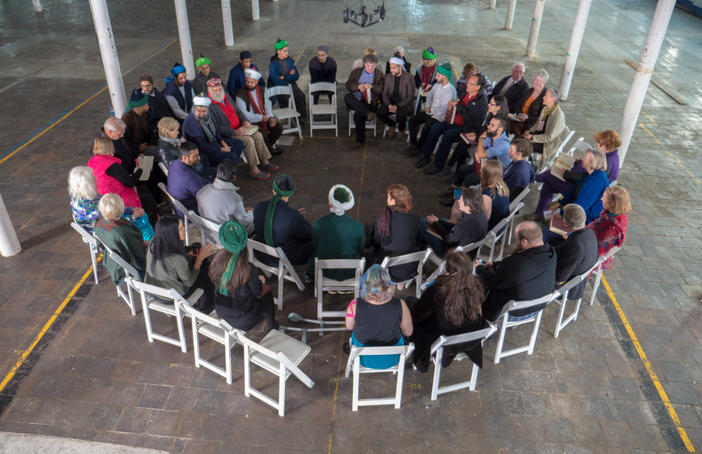Blog Post
Nazli Tabatabai-Khatambakhsh on Faster but Slower, Slower but Faster
12.12.16
"Power, privilege and equity" Nazli Tabatabai-Khatambakhsh on the questions raised by learning from the Creative People and Places programme

Nazli Tabatabai-Khatambakhsh of Zendeh responds to Faster but Slower, Slower but Faster, a summary of learning and insight from the Creative People and Places programme.
What struck me:
- The representation of the top ten tips: in particular that they are visual signposting and motivate a direction of travel.
- I love, love, love the Martin Hannett quote – "Play it again, faster, but slower" because as the report says it is a paradoxical instruction. It makes me think about the Creative Case for Diversity in that each of us are free to interpret it and it is our responsibility to be ambitious and accountable – it is in the articulation that we can champion our human right as set out in article 27 of the declaration of human rights; (1) Everyone has the right freely to participate in the cultural life of the community, to enjoy the arts and to share in scientific advancement and its benefits. (2) Everyone has the right to the protection of the moral and material interests resulting from any scientific, literary or artistic production of which he is the author.
Questions it raises for me:
- The power of consortia practice in gathering intelligence and deployment of resources: in order to advocate and deliver action on common causes; there may well be an opportunity here to publish these models in order to inform the wider cultural landscape and in turn attract new partners?
- Approaches to data solicitation, gathering, analysis, and narrative expression: now is the opportunity to sift through what has been recognised, and to take it to the next level by understanding the priorities with the wider sector; would this lead to a clearer valuing of our collective civic duty?
- How are the CPPs developing culture, for example progressing the artform of theatre; to isolate one strand and focus on community theatre: is this pushing the boundary on biographical theatre/verbatim/co-creation models of authoring new work/reframing classics or is there a particular focus on the development of the process of making theatre?
- Places that we name as local and being to local to, and how over the course of a year many geographies may well be our multiple locals; let alone over course of a lifetime, is culture and the creation of culture our legacies?
- “In 20 of the 21 CPP areas, most people who voted in the EU Referendum voted to leave the EU”. This quote from the the report prompted me to ask the question how many of these CPPs have the Creative Case for Diversity (or a rose by any other name) at the heart of their values and ethics; can Creative Case NORTH be of any assistance?
- Last but by no means least: Power, privilege, and equity are all themes that shine through the report; I wonder if the culture sector embraced evolution, challenged censorship; and championed empathy would we create the conditions for mutual learning through creativity so as to reveal the truth about 21st Century Britain?
This is one of a series of guest blogs. You can read other blog responses to Faster but Slower, Slower but Faster on the links below:
- David Jubb from Battersea Arts Centre
- Saffi Price from Wolverhampton Voluntary Sector Council
- Robin Dixon, a local resident and Cultural Connector for Creative Barking and Dagenham
- Dr Abigail Gilmore from the University of Manchester







